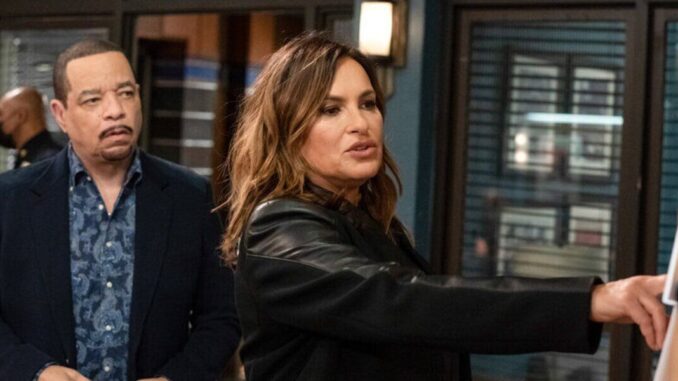
The hum of the precinct, the rhythmic thud of justice being served, is a familiar symphony to millions. For over two decades, Law & Order: SVU has been the unwavering, if often somber, beacon in this landscape, illuminating the darkest corners of human experience with a fierce, empathetic gaze. Then, a few years ago, a new, grittier melody entered the orchestra: Law & Order: Organized Crime, bringing back a beloved, haunted detective and plunging viewers into a labyrinth of systemic evil. The two shows, once inextricably linked by a shared history and a legendary partnership, now exist in their own distinct, yet spiritually connected, universes.
And it is precisely this separation, this tantalizing proximity, that fuels the most fervent whispers among the fandom: the rumors of a Law & Order: SVU and Organized Crime crossover in a hypothetical Season 27. While Season 27 feels like a distant horizon, the very notion of such an event is a powerful illustrative metaphor for the enduring appeal of these narratives, the magnetic pull of unresolved emotional arcs, and the boundless potential for storytelling that lies in the fertile ground between two distinct but complementary worlds.
At the heart of any crossover speculation, particularly between these two shows, lies the gravitational pull of Olivia Benson and Elliot Stabler. Their partnership, forged in the crucible of trauma and sustained by an unspoken language, is the bedrock upon which both series are built. The Stabler of SVU was a righteous, often volatile, force of nature; the Stabler of OC is a man unmoored, grappling with profound loss and the soul-sucking demands of undercover work. Benson, meanwhile, has ascended to Captain, her empathy honed into a sharp, strategic tool, yet the ghost of their shared past remains her most potent vulnerability and her most profound strength. A Season 27 crossover isn't just about a case; it's about the collision of these two evolved, yet forever linked, individuals. It's the literary equivalent of two celestial bodies, having orbited separately for years, finally aligning, their unique gravities affecting each other in profound, unpredictable ways.
Beyond the personal, the rumor illustrates the contrasting, yet equally vital, philosophies of justice that define each show. SVU operates with a surgical precision, meticulously piecing together the fragments of shattered lives, offering a voice to the voiceless, and navigating the intricate legal and emotional landscape of sexual violence. It’s a world of empathy and advocacy, where the victim’s narrative is paramount. Organized Crime, by contrast, delves into the murky, morally ambiguous waters of systemic corruption, where justice is often a blunt instrument, and the line between cop and criminal blurs under the pressure of deep-cover operations. It’s a world of shadows, betrayals, and high-stakes gambles.
A crossover, then, would not merely be two shows sharing a storyline; it would be the convergence of these two distinct philosophies. Imagine a case that begins as a seemingly isolated sexual assault (SVU's domain) but unravels to reveal tentacles reaching deep into a vast criminal network (OC's playground). Benson’s methodical, victim-centered approach would butt against Stabler’s more visceral, proactive pursuit of the syndicate’s head. This dynamic tension would illuminate the strengths and weaknesses of both methods, forcing each character, and by extension the audience, to confront the complex, often messy, reality of seeking justice in a world where good and evil are rarely neatly compartmentalized. It's a powerful illustration of the idea that true justice often requires not just one lens, but a panoramic view, demanding both the steady hand of empathy and the ruthless precision of strategic combat.
Furthermore, the very existence of such a "rumor" speaks to the enduring power of fan engagement and the collective imagination. In the absence of confirmed narratives, the fandom becomes a crucible of speculation, crafting intricate theories, analyzing subtle glances, and constructing desired futures for their beloved characters. A Season 27 crossover is more than just a plot point; it's a wish fulfillment, a hope for closure, for reunion, for the continuation of a story that feels intrinsically unfinished. It illustrates how television, at its best, becomes a living, breathing entity, co-created by its audience, whose desires and dreams for the narrative feed back into its potential future. The rumor itself, therefore, becomes an active participant in the ongoing mythology, a testament to the emotional investment viewers have in these fictional lives.
In essence, the hypothetical Season 27 crossover between Law & Order: SVU and Organized Crime is a potent illustrative essay in itself. It’s an essay on the enduring power of character, the necessary interplay between different forms of justice, and the vibrant, almost organic, relationship between creators and their audience. It's a testament to the idea that some stories, like some relationships, are simply too compelling to remain separated, destined to intersect, even if only in the hopeful whispers of a dedicated fandom, awaiting the day when their two worlds finally, gloriously, collide.
